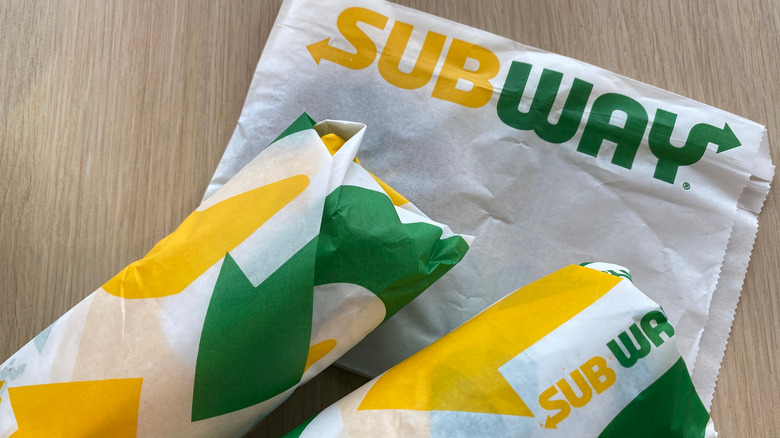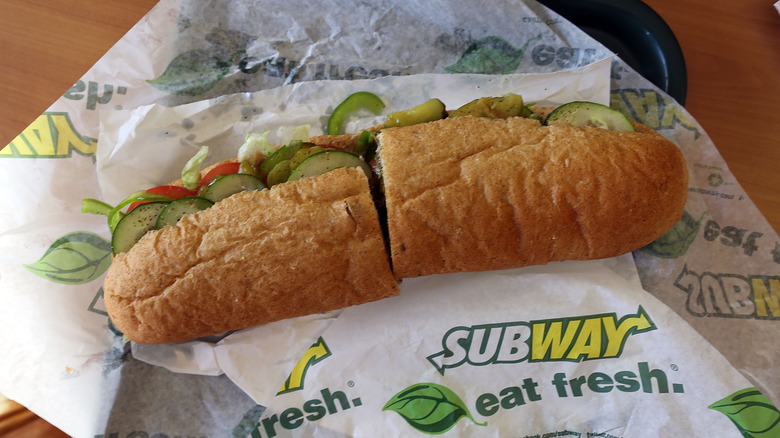Why Subway's Footlong Sandwiches Once Caused A Lawsuit
Subway's legal battle over its tuna sandwich rages on with a sample of its tuna DNA tested and revealed to contain chicken and pork DNA (per NPR). Subway has had its fair share of other legal battles — one of which involved the size of its bread. According to Reuters, it all started in January 2013 when Matt Corby, an Australian teen, posted a picture of their Subway sandwich to the company's Facebook page. The photo showed a footlong sandwich that only measured 11 inches long. Needless to say, the post got a lot of attention and had around 118,000 likes in one day (via New York Post).
Shortly after Corby's post, the lawsuits began rolling in, with cases in Chicago, New Jersey, Wisconsin, and more. Several judges didn't think the case was worth pursuing since some sandwiches were just a half-inch to an inch shy of 12 inches, and the reason for these variances is related to the bread-baking process. Here's why the lawsuit didn't hold up in court.
Subway was accused of selling footlongs that were less than 12 inches but the case was thrown out
In her ruling, Circuit Judge Diane Sykes threw the case out and said, "The settlement acknowledges ... that uniformity in bread length is impossible due to the natural variability of the bread-baking process" (via Reuters). The Eastern District of Wisconsin court judge Lynn Adelman ruled that most of Subway's bread " ... was at least 12 inches long ... " and " ... bread that happened to be shorter than 12 inches was less than ¼-inch shorter." Furthermore, Subway has regulated how much meat and cheese a sandwich receives, and customers can ask for more of any topping if they wish. So even if a sandwich was on "footlong" bread that was less than 12 inches, it would not have less toppings.
Adelman also found that all Subway bread weigh the same in raw dough form and are delivered to stores frozen. Because the baking process can be affected by numerous things, some of the baked loaves may look different from each other. Since the weight of the dough is the same, it wouldn't matter if the final product was less than 12 inches. Adelman ultimately decided that $525,000 would be awarded to the plaintiffs for lawyer fees and "incentive awards," which resulted in about $500 per "named plaintiff." Unsurprisingly, this isn't the only controversy over Subway's bread.

